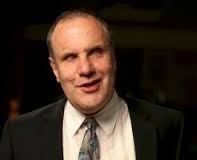Yad HaChazakah
Led by Jews with disabilities according to Torah standards, Yad HaChazakah Jewish Disabilities Empowerment Center provides guidance, resource information, advocacy, and support networks as we promote access to Jewish community life.
The Four Sons through a Disability Lens
Thursday, April 2, 2015
by Rabbi Michael Levy, Board President
 In your mind’s eye, look around at those with whom you have celebrated past Seders.
In your mind’s eye, look around at those with whom you have celebrated past Seders.
A contemplative girl is full of incisive questions. “How could a respected family in Egypt so quickly become an enslaved nation? Why was Pharaoh so stubborn?”
There’s The Squirmer. If he doesn’t declare outright that he’d rather not be at the Seder, his body language clearly broadcasts the message.
Seated next to each other are two frustrated guests—one is always losing his place in the Haggadah, and the other’s eyes often stray to the kitchen.
During its recounting of the Exodus from Egypt, the Haggadah “pauses” to consider Seder participants resembling those described above. They are portrayed as four sons– one wise, one wicked, one simple and one who doesn’t know how to ask.
How should a Seder leader treat these participants? What if they have disabilities?
The Wise Son
Thirsting for knowledge, this wise child can’t stop asking questions. Perhaps he or she has been preparing questions for weeks.
Print-disabled individuals also thirst for knowledge. So do those who are nonverbal, and those who can’t climb two flights of stairs to join a Seder celebration. If we haven’t accommodated them this year, it should be on the “front burner” when we plan our 2016 Seder.
The Wicked Son
At a Seder when I was 18 years old, my older cousin concluded that I was an “angry young man.” Rebellion strains the parent-child relationship, but it’s a very “old normal.”
With so much professional attention focused some adolescents with disabilities, we must recognize rebellion for what it is, and not reflexively diagnose it as a disability-related behavior disorder.
The Haggadah rather harshly rebukes the rebellious participant. Nowadays, an honored tradition prefers a rebuke that is “customized” to the recipient so that it may benefit him or her, whether or not he or she has a disability.
The Simple Son
The Simple Son in the Haggadah isn’t a simpleton. He’s straightforward. He doesn’t put on an act. If he loses the thread of the Haggadah’s discussion, he reaches out for assistance.
Unfortunately, many in our communities automatically treat people with physical or sensory disabilities as “low-functioning,”—not only ignoring our capabilities, but also putting a negative spin on “simple.” Such prejudices have no place at the Seder table, or in any congregational or community activity.
The Son Who Doesn’t Know How to Ask
Perhaps this son has never been allowed to experience the curiosity, contradictions, mistakes and uncertainty that engender questions. Everything is arranged for him. There’s nothing about which to inquire.
Well-meaning parents and educators sometimes conclude “Disabled children and adults struggle through life. Let’s make things easier and arrange all their activities.”
The Haggadah instructs: “YOU open (a discussion) with him.” Stir your child up. Who knows? His or her newly awakened curiosity could gradually transform him or her into the wise child, overflowing with questions.
All Are Welcome at the Seder
We welcome “sons” of any age and character to the retelling of the Exodus from Egypt at the Seder. They too share in our dream—to rid the world of slavery, and to liberate ourselves from any “Inner Egypt” that may enslave us as individuals.
May you and your loved ones have a happy, kosher, and redemptive Pesach.
Leave a Reply